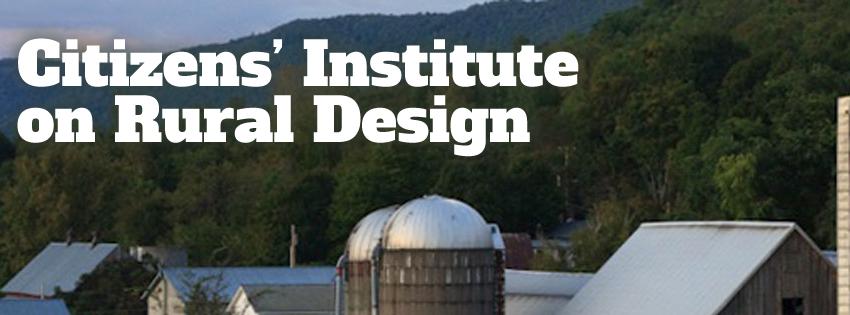Free webinar for rural community leaders: Thinking Beyond the Town Line

Rural community leaders are invited to participate in a free webinar to learn how small towns are working together to support each other.
Offered by the Orton Family Foundation and the Citizens’ Institute on Rural Design, Thinking Beyond the Town Line: Strengthening Rural Development through Cooperation will examine how pooling resources and cooperating across town boundaries can result in new efficiencies and improve quality of life. Susan DuPlessis, program director with the South Carolina Arts Commission, will share highlights from the agency’s pilot project, The Art of Community: Rural SC. The webinar takes place November 17 from 3 – 4 p.m. EST.
The webinar is free, but online registration is required.
Webinar presenters:
- Brett Schwartz, program manager, National Association of Development Organizations (NADO) Research Foundation. NADO offers a myriad of programs aimed at cross-border cooperation including training, research, and peer networking services in the areas of economic and disaster resilience, transportation, and sustainable community development.
- Sarah Lucas, AICP, regional planning department manager, Networks Northwest. Lucas works closely with local governments, nonprofits, and other community stakeholders in northwest Michigan on a variety of community issues, including housing and economic development. She also coordinates and facilitates public outreach strategies and conducts in-depth community research and analysis.
- Lori Meadows, executive director, Kentucky Arts Council. Meadows has headed up the Kentucky Arts Council since 2005. Her work has included convening a 54-county Appalachian region to initiate economic growth and development through arts-related tools, resources and ideas.
- Susan DuPlessis, program director, South Carolina Arts Commission. DuPlessis has a wide range of experience in creative, place-based work including co-directing several significant agency partnerships including the four-state Gullah Geechee Cultural Heritage Corridor Commission, South Carolina’s Rural Promise Zone and the Riley Institute at Furman University. Susan will share highlights from a pilot project, The Art of Community: Rural SC, which is part of the South Carolina Promise Zone initiative.
About the Citizens’ Institute on Rural Design
The Citizens’ Institute on Rural Design™ (CIRD) provides communities access to the resources they need to convert their own good ideas into reality. CIRD works with communities with populations of 50,000 or less, and offers annual competitive funding to as many as six small towns or rural communities to host a two-and-a-half day community design workshop. With support from a wide range of design, planning and creative placemaking professionals, the workshops bring together local leaders from non-profits, community organizations, and government to develop actionable solutions to the community’s pressing design challenges. The community receives additional support through webinars, conference calls, and web-based resources.
About the Orton Family Foundation
With an entrepreneurial spirit and funding derived from the profits of The Vermont Country Store, Lyman Orton and Noel Fritzinger established the Orton Family Foundation in 1995 as a resource for small cities and towns grappling with change and searching for solutions. An active resident of Weston, Vermont and a proud seventh generation Vermonter, Lyman saw that many communities around the state were unprepared for growth and lacking the information and tools needed to steer the change toward a vibrant, sustainable future. The Foundation began by developing a GIS-based 3D visualization and decision-support tool, CommunityViz®, which has helped hundreds of communities across the US imagine new possibilities for growth and change. The Foundation now emphasizes the Community Heart & Soul™ process, a planning methodology that uses broad citizen engagement to build economically resilient and socially vibrant communities based on towns’ unique local character.

